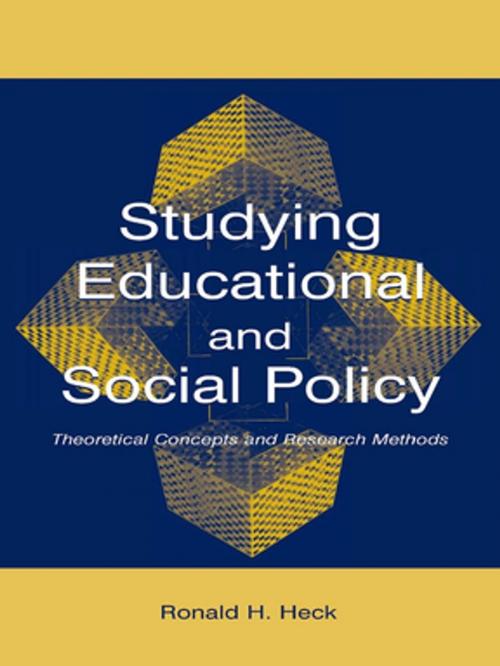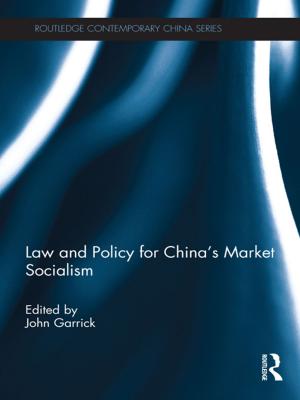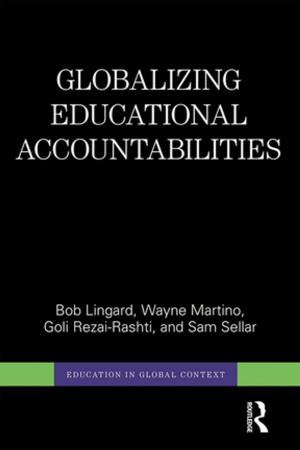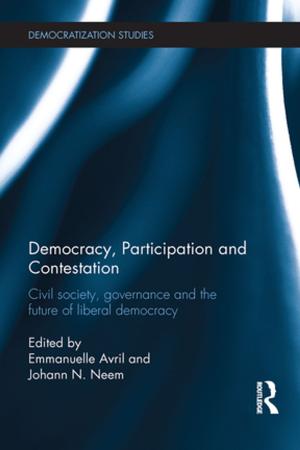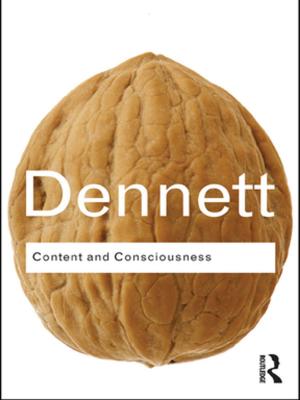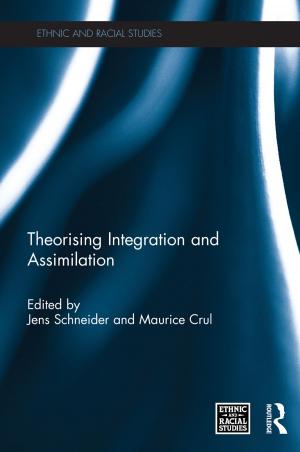Studying Educational and Social Policy
Theoretical Concepts and Research Methods
Nonfiction, Reference & Language, Education & Teaching, Educational Theory, Educational Reform, Social & Cultural Studies, Social Science| Author: | Ronald H. Heck | ISBN: | 9781135627218 |
| Publisher: | Taylor and Francis | Publication: | July 19, 2004 |
| Imprint: | Routledge | Language: | English |
| Author: | Ronald H. Heck |
| ISBN: | 9781135627218 |
| Publisher: | Taylor and Francis |
| Publication: | July 19, 2004 |
| Imprint: | Routledge |
| Language: | English |
The overall purpose of this text is to introduce beginning researchers to the study of educational and social policy, how it has been examined from a scholarly perspective, and the salient issues to consider in conceptualizing and conducting policy research. The emphasis is on "introduce," as the various policy fields within the public sector (for example, education, energy, health, labor) are much too diverse to include in depth in a single volume on theoretical concepts and research methods. The focus is not so much on the substance of policymaking as on understanding the interplay between how policy is made and implemented and the various conceptual approaches and methods researchers can use to frame and conduct policy studies.
The underlying assumption is that a critique of the substantive, theoretical, and methodological issues involved in studying policy can help researchers conduct policy studies that are more informative in guiding policy development and more effective in assessing the impact of policy reforms.
*Part I acquaints readers with substantive issues and challenges related to the study of the policy process, and includes chapters on federalism and policymaking, and on studying policy development, implementation, and impact.
*Part II examines different conceptual frameworks and theories for the study of policy, with chapters on political culture and policymaking, the punctuated-equilibrium theory and the advocacy coalition framework, economic and organizational perspectives, and new approaches (e.g., feminism, critical theory, postmodernism).
*Part III focuses research methods for studying policy, covering research design, qualitative methods, multilevel methods for policy research, and growth modeling methods for examining policy change.
*Part IV compares the diversity of approaches used by policy scholars with respect to their strengths and weaknesses, and presents a number of issues for further consideration in conducting policy research.
This introduction to theories and methods of conducting policy research is intended to give prospective researchers an appreciation of the relationship among policy problems, empirical methods, and practice, and to contribute to building their skills in conceptualizing and conducting policy research that answers important questions. The text includes examples of studies to illustrate the diversity of methodological techniques, and discusses issues related to the design and conduct of original educational policy studies.
Studying Educational and Social Policy: Theoretical Concepts and Research Methods is designed primarily for graduate courses in educational policy and educational research and is appropriate as well for research methodology courses in other disciplines, including statistics and research methodology in the social sciences, organizational studies, public policy, and political science
The overall purpose of this text is to introduce beginning researchers to the study of educational and social policy, how it has been examined from a scholarly perspective, and the salient issues to consider in conceptualizing and conducting policy research. The emphasis is on "introduce," as the various policy fields within the public sector (for example, education, energy, health, labor) are much too diverse to include in depth in a single volume on theoretical concepts and research methods. The focus is not so much on the substance of policymaking as on understanding the interplay between how policy is made and implemented and the various conceptual approaches and methods researchers can use to frame and conduct policy studies.
The underlying assumption is that a critique of the substantive, theoretical, and methodological issues involved in studying policy can help researchers conduct policy studies that are more informative in guiding policy development and more effective in assessing the impact of policy reforms.
*Part I acquaints readers with substantive issues and challenges related to the study of the policy process, and includes chapters on federalism and policymaking, and on studying policy development, implementation, and impact.
*Part II examines different conceptual frameworks and theories for the study of policy, with chapters on political culture and policymaking, the punctuated-equilibrium theory and the advocacy coalition framework, economic and organizational perspectives, and new approaches (e.g., feminism, critical theory, postmodernism).
*Part III focuses research methods for studying policy, covering research design, qualitative methods, multilevel methods for policy research, and growth modeling methods for examining policy change.
*Part IV compares the diversity of approaches used by policy scholars with respect to their strengths and weaknesses, and presents a number of issues for further consideration in conducting policy research.
This introduction to theories and methods of conducting policy research is intended to give prospective researchers an appreciation of the relationship among policy problems, empirical methods, and practice, and to contribute to building their skills in conceptualizing and conducting policy research that answers important questions. The text includes examples of studies to illustrate the diversity of methodological techniques, and discusses issues related to the design and conduct of original educational policy studies.
Studying Educational and Social Policy: Theoretical Concepts and Research Methods is designed primarily for graduate courses in educational policy and educational research and is appropriate as well for research methodology courses in other disciplines, including statistics and research methodology in the social sciences, organizational studies, public policy, and political science
